 W
WAn analog computer or analogue computer is a type of computer that uses the continuously changeable aspects of physical phenomena such as electrical, mechanical, or hydraulic quantities to model the problem being solved. In contrast, digital computers represent varying quantities symbolically and by discrete values of both time and amplitude.
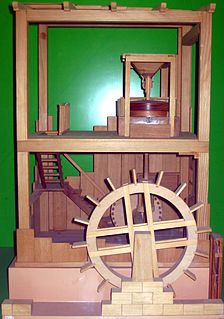 W
WAncient Greek technology developed during the 5th century BC, continuing up to and including the Roman period, and beyond. Inventions that are credited to the ancient Greeks include the gear, screw, rotary mills, bronze casting techniques, water clock, water organ, torsion catapult, the use of steam to operate some experimental machines and toys, and a chart to find prime numbers. Many of these inventions occurred late in the Greek period, often inspired by the need to improve weapons and tactics in war. However, peaceful uses are shown by their early development of the watermill, a device which pointed to further exploitation on a large scale under the Romans. They developed surveying and mathematics to an advanced state, and many of their technical advances were published by philosophers, like Archimedes and Heron.
 W
WThe ancient Olympic Games were a series of athletic competitions among representatives of city-states and one of the Panhellenic Games of ancient Greece. They were held in honor of Zeus, and the Greeks gave them a mythological origin. The first Olympics is traditionally dated to 776 BC. They continued to be celebrated when Greece came under Roman rule, until the emperor Theodosius I suppressed them in AD 394 as part of the campaign to impose Christianity as the State religion of Rome. The games were held every four years, or olympiad, which became a unit of time in historical chronologies.
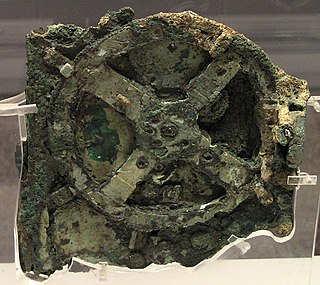 W
WThe Antikythera mechanism is an ancient Greek hand-powered orrery, described as the first analogue computer, the oldest known example of such a device used to predict astronomical positions and eclipses for calendar and astrological purposes decades in advance. It could also be used to track the four-year cycle of athletic games which was similar to an Olympiad, the cycle of the ancient Olympic Games.
 W
WAn armillary sphere is a model of objects in the sky, consisting of a spherical framework of rings, centred on Earth or the Sun, that represent lines of celestial longitude and latitude and other astronomically important features, such as the ecliptic. As such, it differs from a celestial globe, which is a smooth sphere whose principal purpose is to map the constellations. It was invented separately in ancient Greece and ancient China, with later use in the Islamic world and Medieval Europe.
 W
WAn astrolabe is an ancient astronomical device that equates to a handheld model of the universe. Its various functions also make it an elaborate inclinometer and an analogue calculation device capable of working out several kinds of problems in astronomy. Historically used by astronomers it is able to measure the altitude above the horizon of a celestial body, day or night; it can be used to identify stars or planets, to determine local latitude given local time, to survey, or to triangulate. It was used in classical antiquity, the Islamic Golden Age, the European Middle Ages and the Age of Discovery for all these purposes.
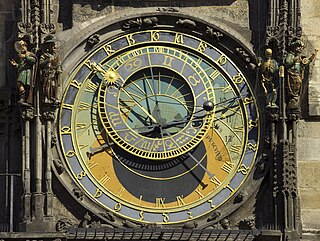 W
WAn astronomical clock, horologium, or orloj is a clock with special mechanisms and dials to display astronomical information, such as the relative positions of the sun, moon, zodiacal constellations, and sometimes major planets.
 W
WThe ballista, plural ballistae, sometimes called bolt thrower, was an ancient missile weapon that launched either bolts or stones at a distant target.
 W
WA bellows or pair of bellows is a device constructed to furnish a strong blast of air. The simplest type consists of a flexible bag comprising a pair of rigid boards with handles joined by flexible leather sides enclosing an approximately airtight cavity which can be expanded and contracted by operating the handles, and fitted with a valve allowing air to fill the cavity when expanded, and with a tube through which the air is forced out in a stream when the cavity is compressed. It has many applications, in particular blowing on a fire to supply it with air.
 W
WA caliper is a device used to measure the dimensions of an object.
 W
WA central heating system provides warmth to the whole interior of a building from one point to multiple rooms. When combined with other systems in order to control the building climate, the whole system may be an HVAC system.
 W
WClock towers are a specific type of building which house a turret clock and have one or more clock faces on the upper exterior walls. Many clock towers are freestanding structures but they can also adjoin or be located on top of another building. Some other buildings also have clock faces on their exterior but these structures serve other main functions.
 W
WRepresentative Democracy is a form of government in which the people have the authority to choose their governing legislators. The decisions on who is considered part of the people and how authority is shared among or delegated by the people have changed over time and at different speeds in different countries, but they have included more and more of the inhabitants of all countries. Cornerstones include freedom of assembly and speech, inclusiveness and equality, membership, consent, voting, right to life and minority rights.
 W
WAn escapement is a mechanical linkage in mechanical watches and clocks that gives impulses to the timekeeping element and periodically releases the gear train to move forward, advancing the clock's hands. The impulse action transfers energy to the clock's timekeeping element to replace the energy lost to friction during its cycle and keep the timekeeper oscillating. The escapement is driven by force from a coiled spring or a suspended weight, transmitted through the timepiece's gear train. Each swing of the pendulum or balance wheel releases a tooth of the escapement's escape wheel, allowing the clock's gear train to advance or "escape" by a fixed amount. This regular periodic advancement moves the clock's hands forward at a steady rate. At the same time, the tooth gives the timekeeping element a push, before another tooth catches on the escapement's pallet, returning the escapement to its "locked" state. The sudden stopping of the escapement's tooth is what generates the characteristic "ticking" sound heard in operating mechanical clocks and watches. The first mechanical escapement, the verge escapement, was invented in medieval Europe during the 13th century, and was the crucial innovation which led to the development of the mechanical clock. The design of the escapement has a large effect on a timepiece's accuracy, and improvements in escapement design drove improvements in time measurement during the era of mechanical timekeeping from the 13th through the 19th century.
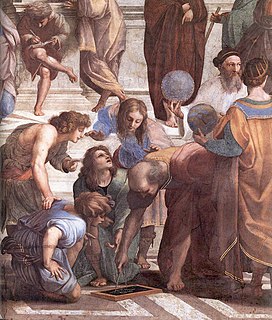 W
WEuclidean geometry is a mathematical system attributed to Alexandrian Greek mathematician Euclid, which he described in his textbook on geometry: the Elements. Euclid's method consists in assuming a small set of intuitively appealing axioms, and deducing many other propositions (theorems) from these. Although many of Euclid's results had been stated by earlier mathematicians, Euclid was the first to show how these propositions could fit into a comprehensive deductive and logical system. The Elements begins with plane geometry, still taught in secondary school as the first axiomatic system and the first examples of formal proof. It goes on to the solid geometry of three dimensions. Much of the Elements states results of what are now called algebra and number theory, explained in geometrical language.
 W
WA frappé coffee, Greek frappé, Nescafé frappé, or just frappé is a Greek iced coffee drink made from instant coffee, water, sugar, and milk. The word is often written frappe. The frappé was invented through experimentation by Dimitris Vakondios, a Nescafe representative, in 1957 in Thessaloniki. Frappés are among the most popular forms of coffee in Greece and Cyprus and have become a hallmark of postwar, outdoor, Greek, coffee culture.
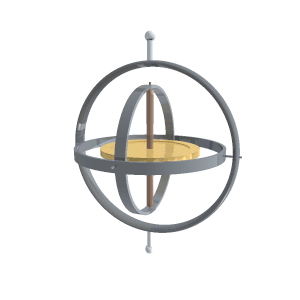 W
WA gimbal is a pivoted support that allows the rotation of an object about a single axis. A set of three gimbals, one mounted on the other with orthogonal pivot axes, may be used to allow an object mounted on the innermost gimbal to remain independent of the rotation of its support. For example, on a ship, the gyroscopes, shipboard compasses, stoves, and even drink holders typically use gimbals to keep them upright with respect to the horizon despite the ship's pitching and rolling.
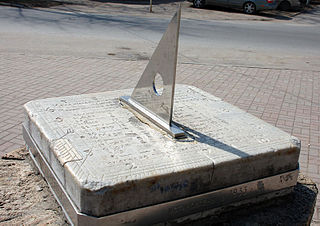 W
WA gnomon is the part of a sundial that casts a shadow. The term is used for a variety of purposes in mathematics and other fields.
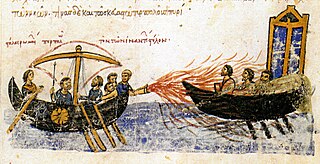 W
WGreek fire was an incendiary weapon used by the Byzantine Empire beginning c. 672. Used to set light to enemy ships, it consisted of a combustible compound emitted by a flame-throwing weapon. Some historians believe it could be ignited on contact with water, and was probably based on naphtha and quicklime. The Byzantines typically used it in naval battles to great effect, as it could supposedly continue burning while floating on water. The technological advantage it provided was responsible for many key Byzantine military victories, most notably the salvation of Constantinople from the first and second Arab sieges, thus securing the Empire's survival.
 W
WGreek salad or horiatiki salad is a popular salad in Greek cuisine generally made with pieces of tomatoes, cucumbers, onion, feta cheese, and olives and dressed with salt, pepper, Greek oregano, and olive oil. Common additions include green bell pepper slices or caper berries. Greek salad is often imagined as a farmer's breakfast or lunch, as its ingredients resemble those that a Greek farmer might have on hand.
 W
WA handheld fan, or simply hand fan, may be any broad, flat surface that is waved back-and-forth to create an airflow. Generally, purpose-made handheld fans are folding fans, which are shaped like a sector of a circle and made of a thin material mounted on slats which revolve around a pivot so that it can be closed when not in use.
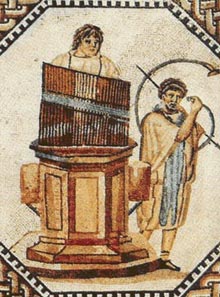 W
WThe Hydraulis of Dion is a unique exhibit of the archaeological museum in Dion. It is the oldest instrument of that type discovered so far.
 W
WThe laouto is a long-neck fretted instrument of the lute family, found in Greece and Cyprus, and similar in appearance to the oud. The name comes from the lute. It is played in most respects like the oud. This instrument is known in Albania as "lauta" and in Romania as "lăuta".
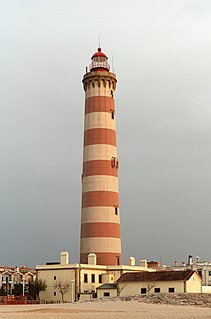 W
WA lighthouse is a tower, building, or another type of structure designed to emit light from a system of lamps and lenses and to serve as a navigational aid for maritime pilots at sea or on inland waterways.
 W
WThe marathon is a long-distance race with an official distance of 42.195 kilometres, usually run as a road race. The event was instituted in commemoration of the fabled run of the Greek soldier Pheidippides, a messenger from the Battle of Marathon to Athens, who reported the victory. The marathon can be completed by running or with a run/walk strategy. There are also wheelchair divisions.
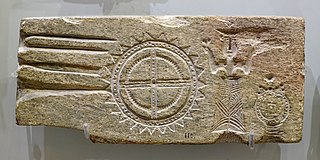 W
WThe Minoan Moulds of Palaikastro are double sided schist casting moulds from the time of the Minoan culture for casting cultural figurines and symbols. These include female figurines with raised arms, double axes and opium poppy flowers or capsules, two double axes with indented edges, "sanctification horns" and a geared disc with a cross and astral symbols, which could have been used for astronomical predictions of solar and lunar eclipses. They have been found near Palaikastro in the eastern part of Crete.
 W
WAn odometer or odograph is an instrument used for measuring the distance traveled by a vehicle, such as a bicycle or car. The device may be electronic, mechanical, or a combination of the two (electromechanical). The noun derives from ancient Greek ὁδόμετρον, hodómetron, from ὁδός, hodós and μέτρον, métron ("measure"). Early forms of the odometer existed in the ancient Greco-Roman world as well as in ancient China. In countries using Imperial units or US customary units it is sometimes called a mileometer or milometer, the former name especially being prevalent in the United Kingdom and among members of the Commonwealth.
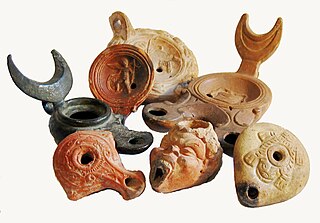 W
WAn oil lamp is an object used to produce light continuously for a period of time using an oil-based fuel source. The use of oil lamps began thousands of years ago and continues to this day, although their use is less common in modern times.
 W
WThe modern Olympic Games or Olympics are leading international sporting events featuring summer and winter sports competitions in which thousands of athletes from around the world participate in a variety of competitions. The Olympic Games are considered the world's foremost sports competition with more than 200 nations participating. The Olympic Games are normally held every four years, alternating between the Summer and Winter Olympics every two years in the four-year period.
 W
WThe Oudola is a stringed musical instrument. It is said to have been custom-built for Agapios Tomboulis, according to his own specifications. He combined the words oud and mandola, and named it oudola.
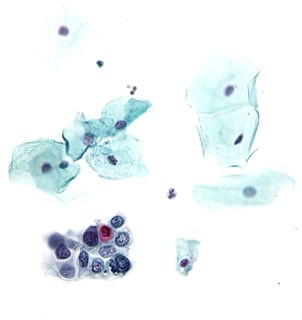 W
WThe Papanicolaou test is a method of cervical screening used to detect potentially precancerous and cancerous processes in the cervix or colon. Abnormal findings are often followed up by more sensitive diagnostic procedures and, if warranted, interventions that aim to prevent progression to cervical cancer. The test was independently invented in the 1920s by Georgios Papanikolaou and Aurel Babeș and named after Papanikolaou. A simplified version of the test was introduced by Anna Marion Hilliard in 1957.
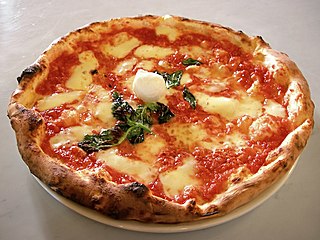 W
WPizza is a savory dish of Italian origin consisting of a usually round, flattened base of leavened wheat-based dough topped with tomatoes, cheese, and often various other ingredients, which is then baked at a high temperature, traditionally in a wood-fired oven. A small pizza is sometimes called a pizzetta. A person who makes pizza is known as a pizzaiolo.
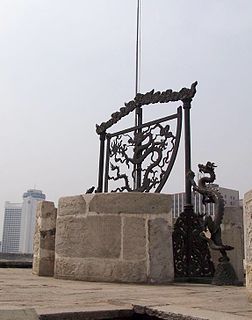 W
WA quadrant is an instrument that is used to measure angles up to 90°. Different versions of this instrument could be used to calculate various readings, such as longitude, latitude, and time of day. It was originally proposed by Ptolemy as a better kind of astrolabe. Several different variations of the instrument were later produced by medieval Muslim astronomers.
 W
WA sacrificial tripod is a three-legged piece of religious furniture used for offerings or other ritual procedures. As a seat or stand, the tripod is the most stable furniture construction for uneven ground, hence its use is universal and ancient. It is particularly associated with Apollo and the Delphic oracle in ancient Greece, and the word "tripod" comes from the Greek meaning "three-footed".
 W
WThe sarisa or sarissa was a long spear or pike about 4–6 metres (13–20 ft) in length. It was introduced by Philip II of Macedon and was used in his Macedonian phalanxes as a replacement for the earlier dory, which was considerably shorter. These longer spears improved the strength of the phalanx by extending the rows of overlapping weapons projecting towards the enemy, and the word remained in use throughout the Byzantine years to sometimes describe the long spears of their own infantry.
 W
WA shower is a place in which a person bathes under a spray of typically warm or hot water. Indoors, there is a drain in the floor. Most showers have temperature, spray pressure and adjustable showerhead nozzle. The simplest showers have a swivelling nozzle aiming down on the user, while more complex showers have a showerhead connected to a hose that has a mounting bracket. This allows the showerer to hold the showerhead by hand to spray the water at different parts of their body. A shower can be installed in a small shower stall or bathtub with a plastic shower curtain or door. Showering is common in Western culture due to the efficiency of using it compared with a bathtub. Its use in hygiene is, therefore, common practice. A shower uses less water on average than a bath: 80 litres for a shower compared with 150 litres for a bath.
 W
WSouvlaki, plural souvlakia, is a popular Greek fast food consisting of small pieces of meat and sometimes vegetables grilled on a skewer. It is usually eaten straight off the skewer while still hot. It can be served with pita bread, fried potatoes, lemon, and sauces, but the souvlaki itself is eaten on its own, with the side dishes eaten subsequently. The meat usually used in Greece and Cyprus is pork, although chicken, beef, and lamb may also be used. In other countries, souvlaki may be made with meats such as lamb, beef, chicken, and sometimes fish.
 W
WTragedy is a form of drama based on human suffering and, mainly, the terrible or sorrowful events that befall a main character. Traditionally, the intention of tragedy is to invoke an accompanying catharsis, or a "pain [that] awakens pleasure", for the audience. While many cultures have developed forms that provoke this paradoxical response, the term tragedy often refers to a specific tradition of drama that has played a unique and important role historically in the self-definition of Western civilization. That tradition has been multiple and discontinuous, yet the term has often been used to invoke a powerful effect of cultural identity and historical continuity—"the Greeks and the Elizabethans, in one cultural form; Hellenes and Christians, in a common activity," as Raymond Williams puts it.
 W
WTsipouro is an Geographical Indication for pomace raki in Mainland Greece and in particular Thessaly, Epirus, Macedonia. Tsipouro is a strong distilled spirit containing 40–45% alcohol by volume and is produced from either the pomace or from the wine after the grapes and juice have been separated. It comes in two types, pure and anise-flavoured, and is usually not aged in barrels, although barrel aged versions do exist.
 W
WA vending machine is an automated machine that provides items such as snacks, beverages, cigarettes and lottery tickets to consumers after cash, a credit card, or a specially designed card is inserted into the machine. The first modern vending machines were developed in England in the early 1880s and dispensed postcards. Vending machines exist in many countries and, in more recent times, specialized vending machines that provide less common products compared to traditional vending machine items have been created.
 W
WThe water organ or hydraulic organ is a type of pipe organ blown by air, where the power source pushing the air is derived by water from a natural source or by a manual pump. Consequently, the water organ lacks a bellows, blower, or compressor.
 W
WA wolf collar is a type of dog collar designed to protect livestock guardian dogs from attack by wolves. Wolf collars are fitted with elongated spikes to stop wolves from attacking dogs on the neck. Such collars are used by shepherds in many countries including Italy, Spain and Turkey.